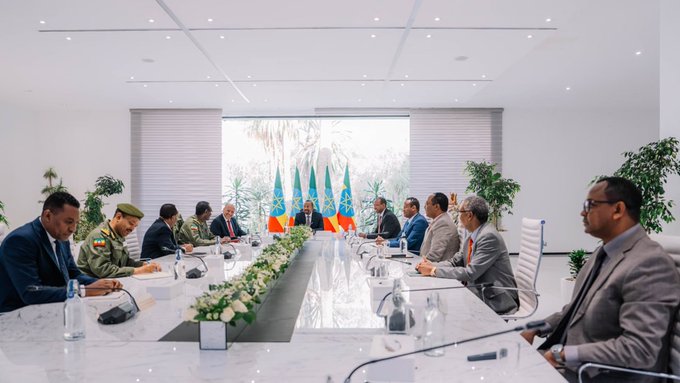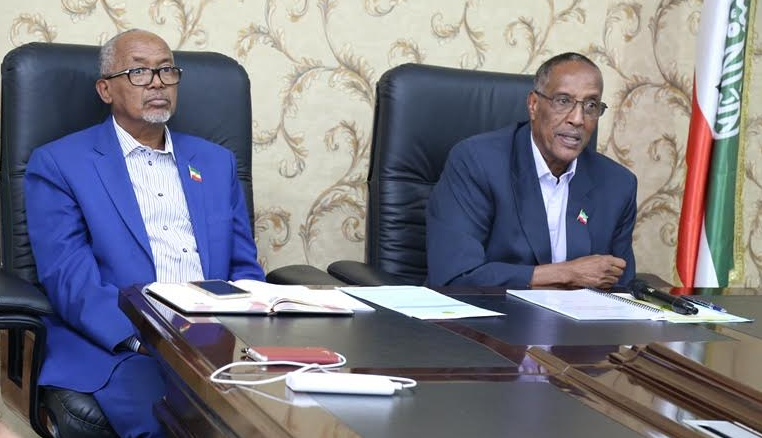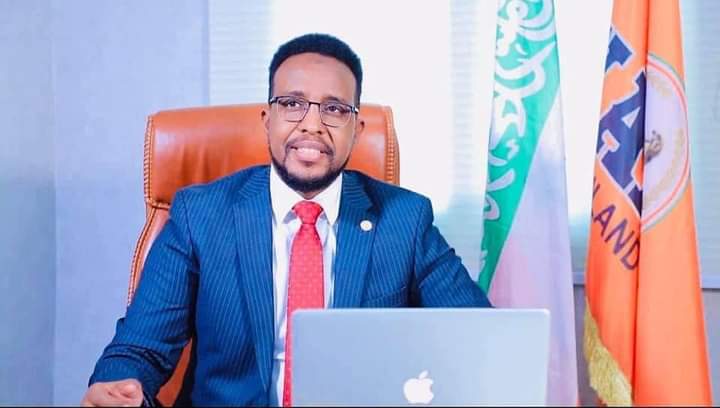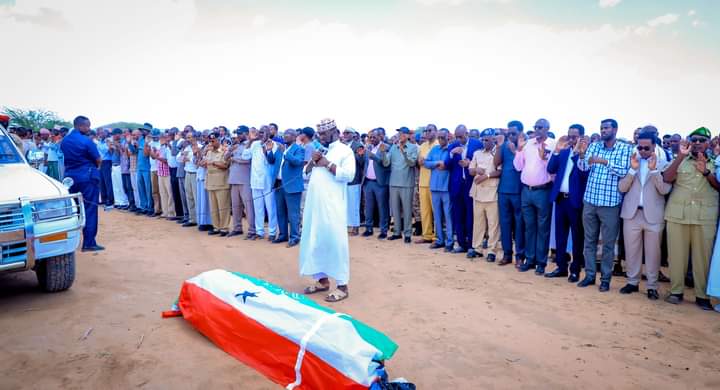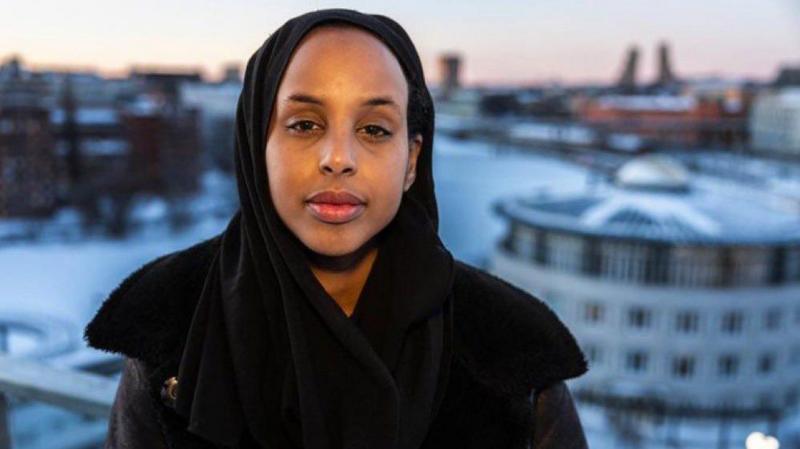Tuesday July 3, 2018By Wesley MorganDespite Pentagon assertions, secret programs allow American troops to direct combat raids in Somalia, Kenya, Niger and other African nations. A U.S. Army Special Forces Operational Detachment Alpha team conducts advanced nighttime marksmanship training at a Nigerien Army range on Sept. 11 along with counterparts from the 1st Expeditionary Forces of Niger. | U.S. Department of DefenseAmerican special operations teams are playing a more direct role in
military actions against suspected terrorists in Africa than the
Pentagon has publicly acknowledged, planning and participating in combat
raids by African troops in multiple countries including Somalia, Kenya,
Tunisia and Niger, under a set of classified programs.
In repeated public statements, military spokespeople have said the
American role in Africa is limited to “advising and assisting” other
militaries. But for at least five years, Green Berets, Navy SEALs and
other commandos operating under a little-understood authority have
planned and controlled certain missions, putting them in charge of their
African partner forces.
Under both the Obama and Trump administrations, the military
has relied on partners in other countries to carry out crucial missions
against suspected terrorists, to avoid American casualties after years
of massive direct involvement in Iraq and Afghanistan. But having
Americans plan and retain operational control of the missions gives them
greater ability to strike quickly against threats, according to
supporters of the programs, even as it shields the true nature of the
missions from critics in the United States and abroad.
“It’s less, ‘We’re helping you,’ and more, ‘You’re doing our
bidding,’” said one active-duty Green Beret officer with recent
experience in West Africa as he described the programs carried out under
a legal authority known as Section 127e. Like several other sources
interviewed for this story, he spoke on condition of anonymity to
discuss classified programs.
“Our special operators not only advise and assist and accompany their
partner force, but also direct it under these programs,” acknowledged
retired Brig. Gen. Donald Bolduc, who until June 2017 commanded most
U.S. special operations forces in Africa, in a POLITICO interview.
“If you’re deployed under this combating terrorism authority, 127e, that’s probably combat” — U.S. Representative Richard Hudson
Ads By Google The budgetary authority behind the secret programs is not itself
classified, and military leaders have referred to it obliquely in
congressional hearings — without describing the unusual arrangements
with African militaries that it allows. In 2014, Adm. William McRaven,
then the military’s top special operations commander, testified that
127e — then known as Section 1208 — is “probably the single most
important authority we have in our fight against terrorism.” And earlier
this year his successor, Gen. Tony Thomas, told Congress that the
authority’s “unique access and capabilities achieve results,” without
elaborating on what those capabilities are.
The role played by American commandos under the authority helps
explain the complex events that led to the deaths of four special
operations soldiers last October during an ambush in the village of
Tongo Tongo in Niger by local militants affiliated with the Islamic
State. The team that was ambushed was not operating under the authority,
but it had been diverted from its normal mission to support a second
team that was.
That second team had been flying across the country to help its
Nigerien partner force raid a militant hideout when the first team was
redirected to back it up — only to have weather force the helicopters
back, leaving the original team in the area on its own, according to an
investigation into the incident by the military’s four-star Africa
Command.
The authority funds classified programs under which African
governments essentially loan out units of their militaries for American
commando teams to use as surrogates to hunt militants identified as
potential threats to American citizens or embassies. That’s instead of
having the American commandos help the African troops accomplish their
own objectives, as other U.S. special operations teams do in Africa.
The programs focus on both reconnaissance and “direct action” raids
by joint forces of American and African commandos on militant targets,
Bolduc and other sources said — a type of mission the Pentagon has
previously denied participating in on the continent.
A spokesman for Africa Command declined to say which African states
host teams under the authority, but former special operations officers
have identified eight countries as current or recent sites of the
surrogate programs. They include well-known combat zones like Somalia
and Libya as well as more surprising sites for American-directed
commando raids like Kenya, Tunisia, Cameroon, Mali and Mauritania — and
Niger, where the October mission that ended in tragedy involved one of
two units that Green Berets run in the country under the authority.
As the Pentagon scrambled last fall to explain what its fallen
commandos had been doing in combat in an African country many Americans
had never heard of, it initially withheld some key facts — including
that a second team of special operations troops had been involved in the
mission too.More than eight months later, the Africa Command investigation has
revealed more details about the role of that second unit, known as Team
Arlit after the Nigerien town where it was based. But the Pentagon still
refuses to acknowledge the full nature of the mission it was conducting
or that it was working under the authority. (Bolduc, a former White
House official, and another former special operations officer with
experience in northwest Africa all confirmed that in interviews.) Both
Africa Command and Special Operations Command declined to comment on any
programs run under the authority, saying information about them is
classified.
One aspect of the programs that the Pentagon considers sensitive is
how close they come to putting the U.S. special operators who plan the
missions in harm’s way. Two weeks after the Tongo Tongo ambush, the
director of the Pentagon’s Joint Staff, Lt. Gen. Kenneth McKenzie, was
asked at a news conference whether any American special operators
participated in “direct action” missions alongside African troops —
military parlance for raids against suspected terrorist targets.
McKenzie had just said that American advisers on the continent were “not
directly involved in combat operations,” a statement that reporters in
the room were eager to clarify.
“No, we’re not involved in direct action missions with partner forces,” McKenzie answered bluntly.
That statement was incorrect. In fact, as Africa Command said in its
subsequent investigation, the mission for which Team Arlit and its
Nigerien partners were flying in when weather forced them back was a
“multi-team raid” — essentially a synonym for “direct action.”
McKenzie’s characterization was “obviously false,” the former White
House official, who has detailed knowledge of special operations
programs in Africa, said in an interview. “We are advising those forces
on direct action missions, and to say otherwise is lying by omission,”
the former official added.
Joint Staff spokesman Col. Patrick Ryder responded that when McKenzie
said “direct action,” he meant “U.S. direct combat operations.” Ryder
said that Americans troops “operate in Niger to train, advise, and
assist Nigerien forces in a non-combat role” but did not dispute that
missions in the country include direct action raids.
“There is more of a direct action flavor” to the missions run by
teams operating under the authority, said Bolduc, the former commander
of special operations forces in Africa. “That’s specifically what it’s
supposed to do.”
The chance to go on raids makes supporting one of the secret programs
a coveted assignment among commandos deploying to Africa. “Yeah, a 127
echo is a better mission,” the current Green Beret officer said, using
the military phonetic jargon for programs run under Section 127e.
“Everybody operates under the same guidelines as far as risk and self-defense and rules of engagement” — Brig Gen. Donald Bolduc
In northwest Africa, teams working under the authority try to track
down militants associated with al-Qaeda or the Islamic State who travel
on desert smuggling routes between Mali, Libya and Niger, said Bolduc,
the former White House official and the second former special operations
officer with experience in the region, who also spoke on condition of
anonymity to discuss classified programs.
During the second former special operations officer’s tour in Africa,
teams on such missions were involved in few actual gunfights, he said —
but suicide bombers once attacked the base where one team lived with
its Nigerien partner force.Brig Gen. Donald Bolduc | Syellou/AFP via Getty Images
“There is a very deliberate process when we leave the gate. It’s not
cowboy shit. We’re trying hard not to be in direct combat unless
something really bad happens to our partner force,” he said. Like other
special operations teams on more standard advisory missions, teams
working under the authority are forbidden from participating in the most
dangerous phase of a raid — when the African force actually enters the
target compound.
After planning the mission based on U.S. intelligence and getting
approval from higher headquarters, the Americans drive or fly with their
local partners to the vicinity of the target, where they are required
to hang back at “the last position of cover and concealment.” That is
the military term for the last place where they can stay out of sight
and are protected from gunfire by some sort of natural obstacle. But the
former special operations officer pointed out that in the deserts and
scrubland of northwestern Africa, “a lot of the time there really isn’t
any cover or concealment to be had.”There, the team “remotely commands and controls” the raid while
monitoring feeds from drones and aircraft that eavesdrop on enemy phone
calls. Afterward, the Americans move forward to check the raid site for
intelligence — or, if something goes wrong during the raid and the
African troops need help, they might move forward and join the shooting.
That happens rarely.
“Everybody operates under the same guidelines as far as risk and
self-defense and rules of engagement,” whether on a surrogate program
mission or a more standard advisory mission, said Bolduc. “I’ve got guys
in Kenya, Chad, Cameroon, Niger, Tunisia who are doing the same kind of
things as the guys in Somalia, exposing themselves to the same kind of
danger, and not just on 127 echoes. We’ve had guys wounded in all the
types of missions that we do.”
Representative Richard Hudson (R-N.C.), who represents the area
around Fort Bragg where many Green Berets who work in Africa are based,
recently introduced legislation seeking a combat zone tax exclusion for
all troops deployed on missions under the authority. Hudson said that he
supports U.S. military activities in Africa and does not believe the
secrecy surrounding them is inappropriate.
“If you’re deployed under this combating terrorism authority, 127e,
that’s probably combat,” he said in an interview, explaining that his
constituents had described those missions to him as among the most
perilous they undertake in Africa, despite the rules mitigating the
risk.
“You have these gray lines between what are African
operations with U.S. assistance, and what are U.S. operations with
African assistance, and what risk profile we’re comfortable with” — Alice Friend, former Obama administration Pentagon official
But Bolduc said that on raids, where special operators take the enemy
by surprise and are supported by drones and spy planes, American troops
and their partners have advantages that they lack on more routine
missions.
“It’s a different kind of danger,” he said. “In some ways these
missions are less dangerous than what the team was doing in Tongo
Tongo,” a more standard patrol where militants were able to catch the
Green Berets off guard, “because you have way more assets dedicated to
these missions and control the environment more.”
Even though commanders try to keep American troops out of combat if
possible, the missions illustrate the murky nature of who is assisting
whom in Africa, said Alice Friend, a former Obama administration
Pentagon official who oversaw counterterrorism policy in northwest
Africa.
“You have these gray lines between what are African operations with
U.S. assistance, and what are U.S. operations with African assistance,
and what risk profile we’re comfortable with,” she said. “At what point
is it actually a U.S. operation? It’s ambiguous.”
The annual funding for the programs has quadrupled since their
inception in Afghanistan, to $100 million — in part thanks to the
glowing testimony generals and admirals have given to Congress. Congress
has reauthorized the temporary authority every year until last year,
when lawmakers made it permanent.
“Congress has seen it as being useful enough to make it a permanent
authority,” said Linda Robinson, a Rand Corp. expert on special
operations, who noted that even the quadrupled annual funding is still a
small sum compared with what the United States spends combating
terrorism in full-scale war theaters like Iraq and Afghanistan.
That point has featured heavily in top commanders’ pitches to
lawmakers about the programs. Gen. Joseph Votel, who commands U.S.
forces in the Middle East — where the programs are also active — and
previously oversaw the programs at Special Operations Command, described
the programs to Congress as “low-cost, small-footprint, [and]
discreet.” He noted that they had led to “hundreds of successful
tactical operations … at a fraction of the cost of other programs.”“Most of these individual programs are $7 [million] to $10 million a
year or less. They’re not very expensive,” said the former White House
official.
The number of African countries hosting the programs has fluctuated
over the years. In 2013, in a development reported at the time by Fox
News, a Green Beret team had to end its mission in Libya after militants
attacked the partner unit’s camp and stole many of the weapons that the U.S. special operators had supplied under the program.Gen. Joseph Votel | Win McNamee/Getty Images
That program was never reestablished, so in Libya, the U.S. military
has since relied on airstrikes and raids by a more secret category of
American commandos from Delta Force and SEAL Team 6 — without local
partners. Such sensitive, risky missions that put Americans directly in
harm’s way are what the programs are supposed to provide an alternative
to, as Gen. Thomas Waldhauser, who heads Africa Command, suggested when
he testified that the programs provide “high payoff with low risk to
U.S. forces.”
Other programs have ended when host countries grew uncomfortable with
the arrangement. “The partners who host these programs are concerned
about any optics that would make their citizens think the U.S. is using
them as puppets in their own countries,” Bolduc said. One such country
was Mauritania, which pulled the plug on a longstanding program.
“The host country has to understand what they signed up for, and
Mauritania was never comfortable with what they signed up for,” said
Bolduc. “It just didn’t fit how the Mauritanians saw themselves, giving
up authority over one of their units.”
Friend, the former Pentagon official who oversaw counterterrorism policy in northwest Africa, said
such disputes are sometimes unavoidable. “The idea is that they and we
both have an interest in the same set of counterterrorism missions, but
partner states facing the same threats may define their national
security priorities differently than we do,” she said.
But other African governments have embraced the programs. Already
home to one surrogate unit, the government of Niger permitted another
Green Beret team to stand up a second one, and asked only to be kept
“apprised” of the units’ operations, the former special operations
source said.
“These programs are not meant to be indefinite, and we
have to do them in such a way that the capability can eventually be
handed over to our partners once we’ve accomplished the original goal”
— Brig Gen. Donald Bolduc
“It works differently in each country,” said Michael Hoza, the former
ambassador to Cameroon, where “a handful of SEALs” are helping local
commandos hunt the organizers of a Boko Haram suicide bombing campaign.
Cameroon’s president reserved the right to approve every mission the
SEALs proposed, Hoza told POLITICO, “because he did not want any
American casualties in his country.”
Somalia is another willing host, welcoming the ability the units
bring to conduct short-notice raids against the al-Qaeda-linked
al-Shabab insurgency aboard U.S. helicopters. “All U.S. military
activities in Somalia were done with the full support of the Somali
government during my tenure,” said Steven Schwartz, the ambassador in
Mogadishu until last fall, in an interview.
At the time, according to Bolduc, SEALs ran two separate units under
the authority in Somalia. Waldhauser, the general who heads Africa
Command, testified to Congress in 2016 that one of those units was
“instrumental in recent operations to remove senior al-Shabab
leadership.”
Besides the tactical benefits, hosting one of the surrogate programs
can be a way for a government to court American support more generally.
African governments may agree to host the programs “because it makes
their units more effective and allows them to take advantage of U.S.
resources and intelligence,” said Andrew Lebovich, a visiting fellow at
the European Council on Foreign Relations who studies security in
northwest Africa. “But it’s also an easy way to cultivate closer
security ties to the U.S. and gain more U.S. support in some cases.”
Special operations forces run 21 programs worldwide under the
authority, Thomas, the military’s top special operations officer,
testified earlier this year. A few weeks earlier, the deputy assistant
secretary of defense who oversees commando missions, Owen West, told
Congress that he expects “that the need for these programs will
continue, if not grow.”Brig Gen. Donald Bolduc with Senegal’s Army General Amadou Kane | Seyllou/AFP via Getty ImagesBut people familiar with the programs say it is hard to know how
effective they really are — and that some may need to evaluated more
harshly and cut back.
Militant groups in Africa “have expanded a little, changed shape a
lot, gotten much more bold in their operations” during recent years as
U.S. special operations activity against them has become more intense,
Friend said. In response, “we simply seem to have thrown more special
operations forces at it, but without a wider strategic review.”
Bolduc, whose overall view is that the programs are “pretty darn
effective,” nonetheless acknowledged that during his time overseeing
commandos in Africa, some of the programs he inherited seemed to have
outlived their usefulness, and others were “developing capabilities that
couldn’t be sustained.” He cited Somali commandos who became reliant on
U.S. helicopter support, which they would not be able to count on once
their unit was transitioned back to normal Somali control.
“These programs are not meant to be indefinite, and we have to do
them in such a way that the capability can eventually be handed over to
our partners once we’ve accomplished the original goal,” Bolduc said.
Robinson, the Rand Corp. expert on special operations, said that
while “there is broad agreement that this authority fills a gap” to
quickly create African forces that can raid terrorist targets at U.S.
behest, “there has to come a time where you judge if a partner isn’t
committed or effective and off-ramp them. Some have been off-ramped and
perhaps more will be.”
“Once you start these things, they’re hard to turn off. Some of them
pan out, and some of them don’t,” said the former White House official.
“I don’t think Congress or SOCOM [Special Operations Command] really
hold them to account. Nobody’s put the boot on people’s necks to make
sure these programs truly are effective.”
advertisements
- Refugee celebrating first 4th of July shares journey to US - ABC6
- Who is Halima Aden, the first model to wear a hijab on the cover of Teen Vogue? - GMA
- AU steps up training of Somali police ahead of transition - NAN
- Ethiopia: The Somali strongman - The Africa Report
- 31st AU summit ends in Mauritania with decisions on Libya, Somalia, S. Sudan - africaNews
- Somali Identification Team meets with World Bank officials to discuss National ID cards - HOL
- The Pirates Of Somalia Is A Great Travel Book, Lackluster Movie - FoxnoMad
- Al-Shabaab Bans Plastic Bags To Protect 'Humans And Animals' - Huffpost
- African Union summit ends in Mauritania - Anadolu Agency
- China issues U.S. travel warning amid trade tensions - Reuters
- Bono warns that existence of UN, EU and NATO are threatened - AP
- AMISOM to intensify training of Somali police officers on security maintenance - AMISOM
- Ethiopian Airlines gets its first Boeing 737 MAX - Trade Arabia
- Dubai “port” could change land-locked Africa - CAJ News
- From herding camels to digging graves – demise of a proud Somali pastoralist - Radio Ergo
- Illegal sugar: Economic terrorism - The Star
- 2018 Graduation Class Achieves Highest Number of Somali-American Graduates - ABC6 News
